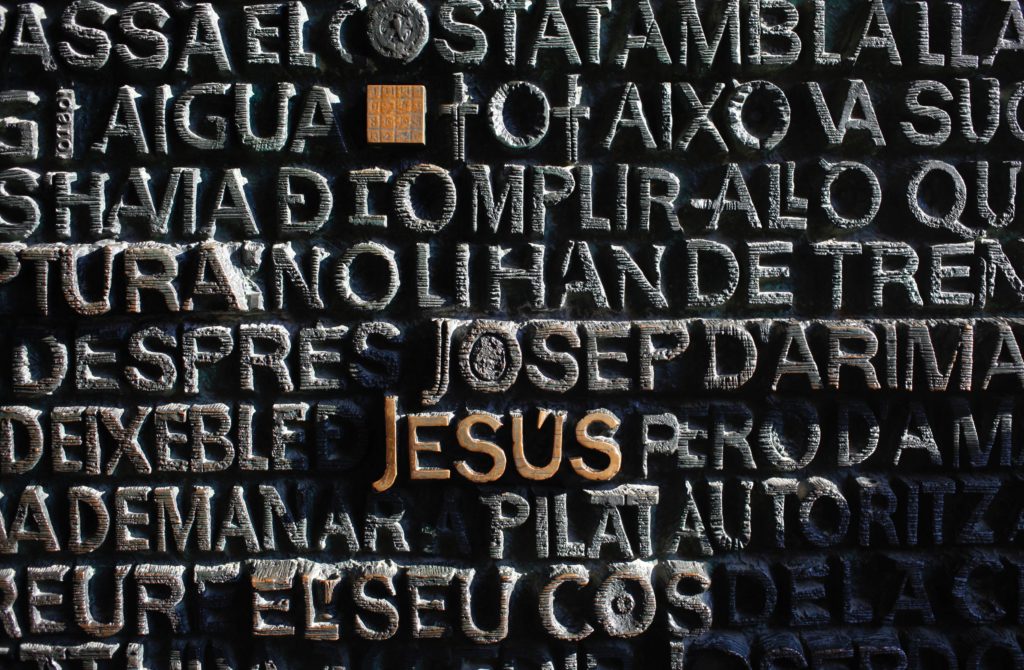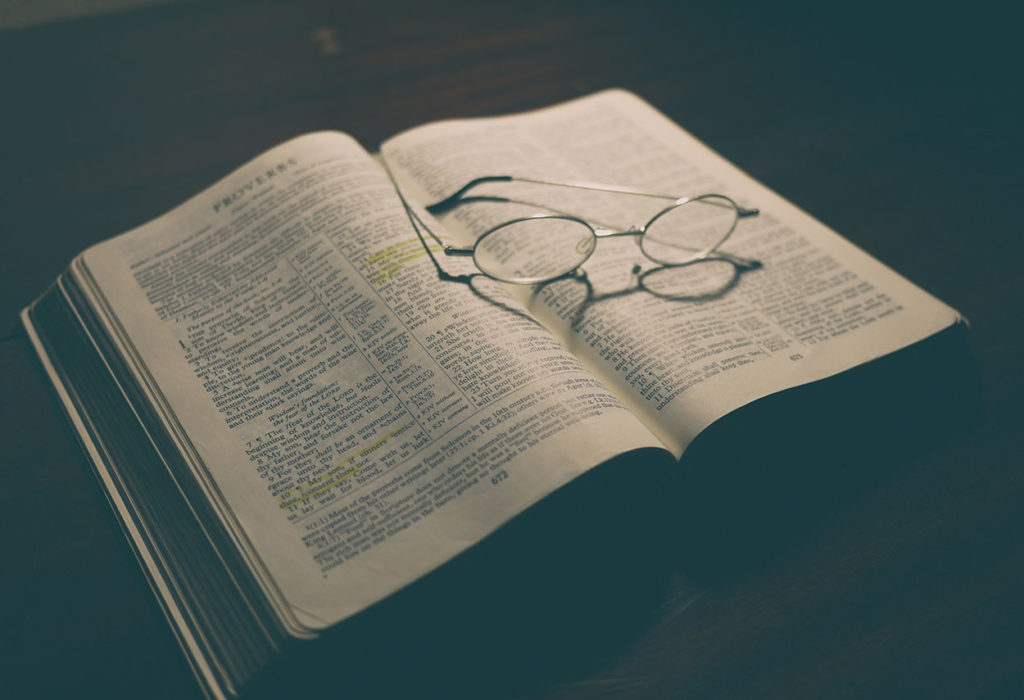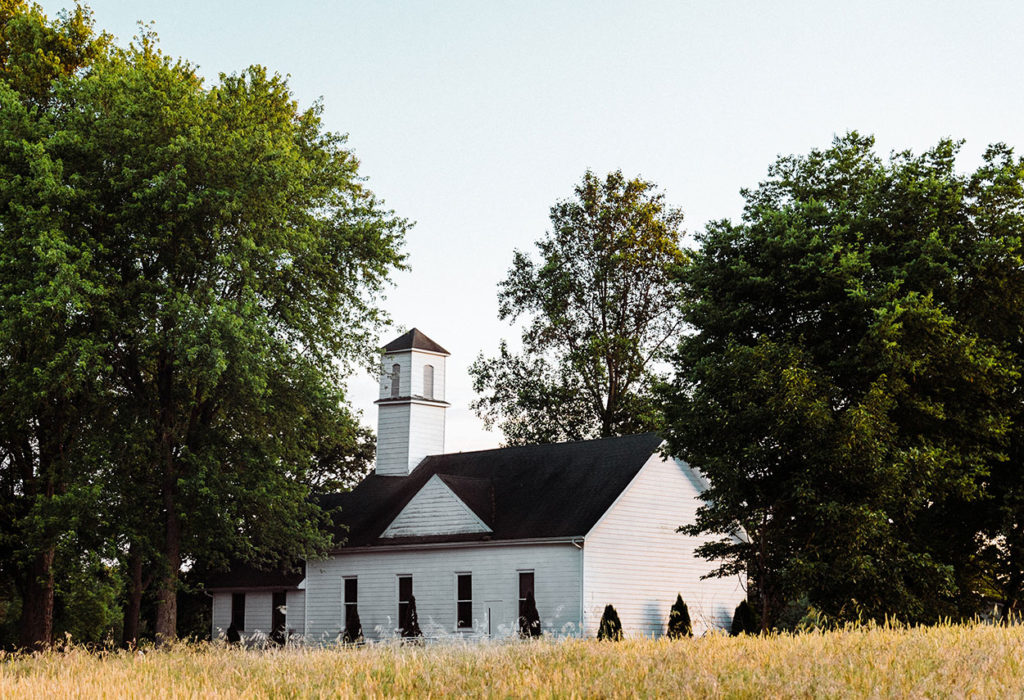(The suggestions in this reflection are not intended to be a litmus test for post-modern belief, rather prompts for continuing the conversation. There are questions at the end to encourage us to do so.)
Religion Defined
Christianity is one of the great religions of the world. If you Google “religion definition” the first entry is: “the belief in and worship of a superhuman controlling power, especially a personal God or gods.” No wonder people today would rather say: “I’m spiritual, not religious!”
This is an unfortunate definition. It is narrow. And a caricature. It gives prominence to the “God of Supernatural Theism,” a God that still is but never was. (I refer to the God of Supernatural Theism in our eNewsletter Awe and Wonder, Here and Now.) The Google definition also emphasizes “belief.” Marcus in a number of places unpacks his understanding of “belief” and disentangles it from the 6, or any number of unbelievable “things you must believe before breakfast.”
But the word religion comes from the Latin religare which means “to bind or tie together.” I suggest religions are our efforts to bind or tie together some kind of congruent, hopeful, tolerable narrative or framework to help us make sense of the varied experiences of human life. They are arguably responses to what we might call “The Sacred” or “The More,” the fact that we exist at all. And they reflect our hope that “the game is worth the candle.” Human life is filled with awe and wonder and things that make us fear and tremble. Religions attempt to explain and perhaps at their best provide open-ended questions for what we can’t fully know or control or understand.
The Search for God
Religions are ostensibly about our search for God. And according to Google’s first definition, a “superhuman” and “personal” God. Because we want it to be. We want “God” to be characterized by love. I think this is a noble instinct. I suggest that religions truly express our deep human need for God. An overarching framework or underlying reasonability that we can trust with our lives if not our future. We have a need for connection with things seen and unseen. We ask the big questions: what is the nature of Reality, what is our purpose, is there meaning in all this? Throughout our history, we have attempted to name our origins, describe the wounds of our existence, suggest a remedy. From the beginning, we have tried to bind or tie together a story to live by and die by. These stories are archetypal. And they are brilliant. Brilliant human constructions that reveal our longings, hopes, and fears. They show off our ingenuity and artistic flourish. They display our richness of self-expression and our capacity for compassion and empathy and longing for justice.
The Dark Side of Religion
As human constructions, religions also have a dark side. They have been the greatest means for legitimating war, oppression, power and control. A devastating amount of blood has been spilt in the name of “God” or the “values” of religion. Those atrocities are about us.
For good and for ill, religions have played a decisive role in human history. And will for time to come.
So, religions then and now, I suggest, are efforts to bind or tie together a narrative or framework, to present a vision that helps us live. And we gather to tell our story again and again. And hope for a fresh word.
Christianity
Central to the Christian story is Jesus. Jesus is one of us. A human being. If he is not, he is of no earthly good to us. He shows us our capacity as human beings and our need and capacity for God. The heart of Jesus’s teaching I suggest is to love our neighbor as we love ourselves (How are we doing at that?). And how we love our neighbor and ourselves is how we love God. Might it be said that there is something inextricably bound between the human being and the nature and character of God? And what is at stake is nothing less than humanity’s future, and God’s as well?
Christianity is one of the world’s great religions. The Christian story is a powerful story of hope and possibility. Even as it tells the story of the suffering of the innocent. How do we tell this story today? And how do we live to keep hope alive?
As you continue the conversation:
- What do you make of the suggestion that we have a need for God as distinct from ours being a search for God?
- What difference does this emphasis make?
- What of the suggestion that the human being and the nature and character of God are inextricably bound?
- What of our responsibility for our future and God’s?
- How does this way of thinking stack up against your understanding of Christianity?
- What do you make of it?




Marcus’s explanation of panentheism fits perfectly with a study I am pursuing in Gordon D. Kaufman’s book, “In the Beginning . . . Creativity. He has much to say about God talk and the necessity of addressing the issues of the day with a fresh language. I think I have all of Marcus’s books, but I can’t remember where he talks about divine creativity. Can you help me here? Another book that addresses the theme of panentheism is “Standing in the Light” by Sharman Apt Russell. Thank you so much for the wonder blog.
Gene. Thank you so much for the book references. I will pursue. Just what I and I expect others will value — reflective conversational partners! There are two authors you are no doubt familiar with Ellen Abrams who stirringly and very throughtfully explores the God question and David Galston, the executive director of the Westar Institute,(aka Jesus Seminar) who challenges us and elucidates “Gods Human Future.” I will check out Kaufman and Russell. Divine creativity. Marcus doesn’t use that language. I think he would be more inclined to suggest that creativity is an asepct of “that within which we live and move and have our being.” I don’t think he would parse that out as divine versus not divine. So, What do you mean by “divine creativity” or what are you seeking through that language? Again, thank you for your references and provoking more thought for me. By the way, as you know, You are in good hands reading Marcus Borg. So glad you have. He’s worth reading again.
Gene
Wanted you to know I have read Kaufman’s Jesus and Creativity. A shortened version of his larger work. And now Don Cupitt’s Creative Faith and Sea of Faith. Add to that Lloyd Geering’s Reimainging God and we have a framework for an exciting, expansive conversation….that is not reductionistic but moves us from a “theological realism” that is surely due. Marc did not refer to Geering or Cupitt or Kaufman much….Marc was more the master of hermeneutics. A great Christian apologist. They are suggesting a new framework. Keep me posted on your thoughts.
Gene. I am now reading standing in the light, And loving it. Russell makes a distinction between pantheism and panentheism….technically a distinction from Marc’s use of the word…..but in spirit I think they are affirming and experiencing the same….I will get back to you when I am finished with her book.. thanks again for the suggestions.
In the spirit of “continuing the conversation,” here is my response to the first question above:
My understanding of a “need” is that it is not optional for life to be sustained. I do make a distinction between human “needs” versus needs of other living things (to the extent that our imagination compels us to think of more than physical needs). I believe the human need for God is “built in.” There is a historic tendency to create God with physical attributes, but we are cautious, and maybe even fearful, about imagining an alternative to what is the cultural norm. Masquerading as God is imagery brought to us by followers of supernatural theism. They are persistent in their pursuit to keep “fear” alive and “belief” from faltering. Mediums of expression, in the form of traditions, creeds, and beliefs, make it difficult to discern where God is in this milieu. In a nut shell, I think that our need for God is “built in” and our search for confirmation is filled with complexity.
Ken. Thanks for continuing the conversation. I agree that the need for “God”is built into the human psyche. A combination of our apprehension that there is a “More” and our built in tendency to anthropomorphize. When we do the latter God becomes ourselves writ large. We see our own glory and our shadow. What I am wrestling with these days is recognizing that God is a human construction and the marvels of synchronicity and consciousness and perception and grace and resilience and compassion and gratitude …and on and on….that occur beyond our construction. But we recognize them. And we story them. When it is all said and done I hope we will be able to say, “I am so glad I didn’t miss this.” And in the words of a Jewish sabbath prayer, “exclaim in Wonder, ‘How filled with awe is this place.’” With your help and the engagement of others I look forward to learning and seeing and living more fully and hopefully. Even if that leads me beyond the God I thought I knew.
I have received my copy of, “Days of Awe and Wonder at 3pm this afternoon and by 7pm had read suffieient to know that it was a book I had been looking for. We discussed the Foreward and first chapter this evening at a “Questions of Faith Group” at the Wellinton Church of Scotland in Glasgow. We will go on discussing it on Thursday evenings for the next month. There are seven in the group and we all feel it is an excellent basis for discussion.
I particularly enjoyed the Forward and the intelligent use of the poem by Amichai. One question was left unanswered, the phrase Awe and Wonder, where does it come from?
Rex. Lovely to hear from you and know that Days of Awe and Wonder is stimulating questions of faith. And affirmations too. I will welcome hearing more from you about the book study experience. Please keep me posted. Concerning Awe and Wonder. Marcus was receptive to both! And saw the remarkable fact of our existence as filled with both. I recall a title of Martin Buber, I asked for Wonder. What preceded this was, I did not ask for success. I asked for wonder. And indeed his ask was fulfilled. Let me know how your group experiences Awe and wonder. Our days are filled with them, thanks so much for being in touch.
Jesus was the human expression of God, and so are we, if we dare to claim it!
Yes. Jesus is one of us. Shows us the depth of our human capacity. Which is ours to claim. Thanks for your thoughtful comment.